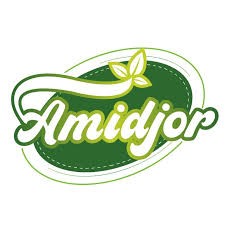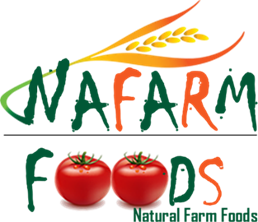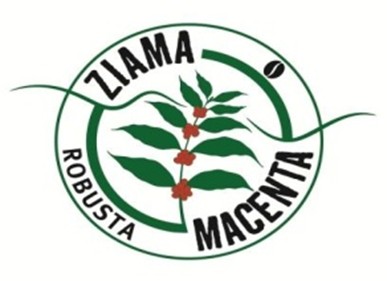Amidjor is a company specialized in agri-food production, processing, and training.

AbdulLateef is a passionate entrepreneur. He co-founded Nafarmfoods and two other companies on his own, namely CraftPlanet, a company recycling agricultural waste into pellets or flakes that are used as an alternative fuel source, and Smartlynk ICT, a web design and development company.
AbdulLateef studied Geography at the University of Abuja, Nigeria, and was selected to follow the Tony Elumelu Foundation entrepreneurship program in 2016 to improve his skills in management and entrepreneurship.
AbdulLateef is committed to the economic development of Africa and the well-being of its people. His engagement has led him to receive numerous awards, such as the Bank of Africa African Entrepreneurship Award in 2016, the Gender for Agribusiness Investment for Africa (GAIA) AgTech Award in 2017, the University of Nairobi All Africa Postharvest Technologies & Innovation Award, as well as the African Development Bank Africa Youth Agripreneur Award in 2018.

Type: Enterprise
Year of Founding: 2015
Number of Employees: 23 in the processing facility and 49 collaborators
CEO: AbdulLateef Olaosebikan
Mission: To be a leading tomato processing company in Africa by adopting global best practices and to develop a scalable impactful and sustainable business to improve socio-economic conditions.
Vision: To tap the potential for local production of tomato paste in Nigeria and Africa and to offer innovative products and high service to the customers while ensuring that human and social standards are met.
Founding
Nafarmfoods has been created in 2015 to contribute resolving interconnected issues linked to the double burden of the tomato production seasonality, namely wastage during the harvest season and scarcity and extreme prices during the off-season.
The perishability of tomato and lack of storing infrastructures in Nigeria, and more broadly Africa, leads to a high rate of tomato waste during the harvesting time, resulting in smallholder farmers losing about 45 % of their tomato production per year. However, tomato supply is scarce once the harvest season is over which leads to increased price up to 13-15 times and local consumer not being able to afford this common commodity (source: FAO and GEMs4 cluster map).
To tackle these issues, Nafarmfoods processes tomatoes into paste, puree etc. and packages them to extend their shelf life. The company also processes and preserves other vegetables such as pepper and onion by adding them to tomato-based products.
Relationship with Smallholders
Nafarmfoods sources raw products, especially tomatoes, from local farmers. It has developed a very strong relationship with producer cooperatives from six regions of Nigeria.
The company also works with about 420 distributors from its network of cooperatives and women’s groups to sell its products to small-scale retailers and to customers. The company works mainly with women from rural communities, grouped into seven cooperatives, representing nearly 28,000 members.
Products and Markets Covered
Nafarmfoods processes tomatoes and other vegetables (onion, peppers, chilies etc.) into highly nutritional value-added products such as tomato paste, puree or concentrate. The company also produces a mix of tomatoes, onions and pepper called Royal Stew.
The products are available in different package sizes (usually 70°g or 2°kg pouches) and can be produced in any company’s brand name. All the products are 100% natural, without preservatives.
The products are processed in an environment complying with food safety and quality standards to ensure their high quality. They are packaged in different containers according to the customers’ requirements.
In addition to its processing activity, Nafarmfoods is committed to provide capacity building to its staff and partners. The company organises training in tomato production, processing and packaging to its employees and other entrepreneurs in the sector. It also supports its partners and other tomato-processing businesses to enter new markets through training in marketing and sales to improve the packaging and branding of their products, and to invest in new facilities.
The production is organic certified.
Nafarmfoods is the only tomato processing company with a social business model in Nigeria. The Nigerian company supplies the national market by selling its products to retailers and distributors in the country or directly to the consumers in its facility or in supermarkets.
Innovations: Milestones and Expansion Plans
Nafarmfoods’ co-founder, AbdulLateef, was selected to take part with 14 other African agripreneurs to a training program on agribusiness in South Korea at the Institute of Green Bio Science and Technology (GBST), facilitated by Enable Youth programme of the African Development Bank. This training enabled AbdulLateef to develop his agricultural skills, as well as an agribusiness model supporting both the agricultural revolution and rural-urban economic development.
One of Nafarmfoods’ drivers of success is to have developed a preservation technique to circumvent the perishability of fresh tomatoes by drying and converting raw tomato into powder. The value-added end-product is available throughout the year at a highly competitive price and meets the customers’ demand for convenience and easy-to-use food.
The company also developed an important network of fresh tomato suppliers by having mapped 91% of the tomato farmers in Nigeria between 2017 and 2019 (in partnership with the NGO Technoserve Nigeria and the Rockefeller Foundation through Yieldwise Project Mapped).
The company’s successful development also lies in continuous investments into its activity and facilities. Nafarmfoods built, for example, its own biomass drying facility with a storage capacity of one ton in order to make use of all the tomato, including its wastage after having been processed.
Nafarmfoods plans to increase its production by extending its processing facility (as the capacity of its current facility has been reached) and by building a central packaging hub. The company also works on building partnerships with key players in the processing sector and to enter new markets across eight West African countries by 2024.
Success Factors and Lesson Learned
Nafarmfoods is a business model based on a holistic approach which combines preserving natural resources, guaranteeing food security, fighting excessive prices of out-of-season commodities, generating income and ensuring gender inclusion.
Between 2017 and 2022, over 4,800 tons of tomatoes have been processed avoiding them from being discarded. Following its extensive mapping exercise, Nafarmfoods supported 91% of the tomato farmers in Nigeria to reviving their processing facilities and provided them training to develop their activities. The company empowered over 800 women and young with enhanced knowledge and capacities.
Moreover, Nafarmfoods has created 72 direct employments and 28,000 indirect jobs. The company also works with over 420 distributors, mainly women, and so enables women to engage with the market.
By processing tomatoes, Nafarmfoods also contributed to increase the farmers’ income as they could sell more, or even all, of their production. Processed tomatoes with an extended shelf life also enable to circumvent the price fluctuation due to the tomato harvest seasonality.
Resources
https://nafarmfoods.com.ng/
https://www.facebook.com/nafarmfoods/
https://www.howwemadeitinafrica.com/starting-a-tomato-products-business-in-nigeria-entrepreneurs-journey-so-far/136473/
https://www.agenceecofin.com/entreprendre/1401-94390-le-nigerian-abdullateef-olaosebikan-partage-son-experience-dans-la-transformation-de-la-tomate
https://safeem.org/women-entrepreneurship-4-africa/food-and-beverages/
https://miyongafreshgreeens.wordpress.com/2019/02/09/for-the-love-of-tomatoes-in-nigeria/
https://www.tonyelumelufoundation.org/west-africa/abdullateef-olaosebikan-a-tale-of-boldness-and-ingenuity
Additional Resources
Join our Forum to discuss and explore how to encourage innovations across agricultural value chains to transform food systems in African, Caribbean and Pacific countries and beyond, promote sustainable agriculture & leverage investments. Share insights, ask questions, and collaborate on innovative solutions for a greener future.
Recent Business Profiles

Amidjor is a company specialized in agri-food production, processing, and training.

ADECAM is a community-driven organisation in Guinea dedicated to protecting, promoting, and developing the Ziama-Macenta Geographical Indication coffee, while supporting smallholder producers...

Tac Maz Sustainable Ventures is a climate-smart social enterprise in Malawi supporting smallholder farmers through sustainable poultry and horticulture production.

Bono Salus is a Zimbabwean woman-led agribusiness specializing in urban hydroponic farming of microgreens.

The Nut Place is a Nigerian food innovation company that processes locally grown edible nuts into gluten-free, nutrient-dense products to improve nutrition, reduce post-harvest losses, and promote...